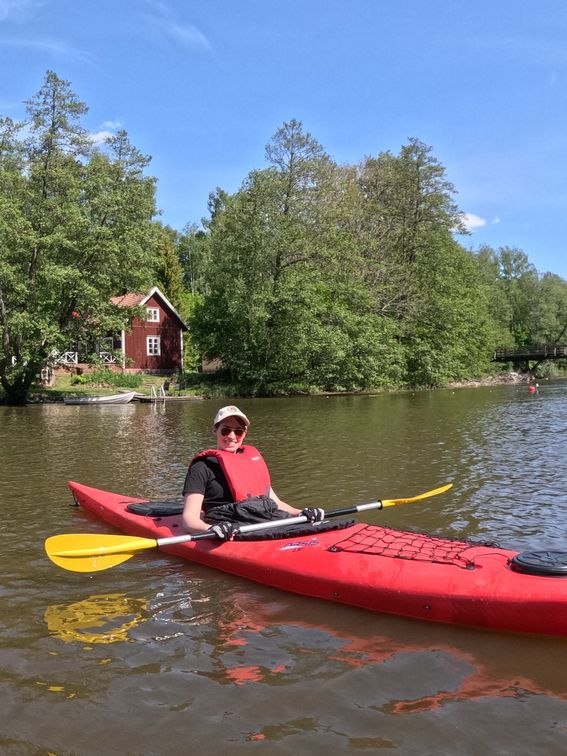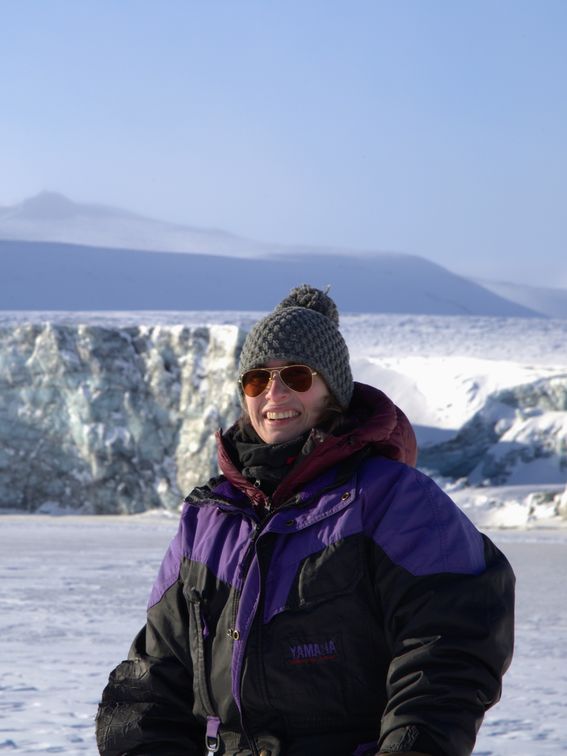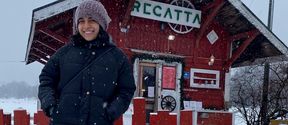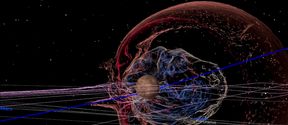Electronics and Nanotechnology, Master of Science (Technology)
By developing modern hardware technology, electronics and nanotechnology experts play a key role in shaping the future.

Alum Lena Mielke worked as Development Engineer at Airbus Defence and Space. She sees Aalto as a place with a lot of possibilities to uniquely form one's studies.
I was working after my bachelor’s in aerospace engineering for a few years and I realised that I was missing something in my professional career. I wanted to learn more about space science and research. I decided for Aalto because the Space Science and Technology major (Master's Programme in Electronics and Nanotechnology) combines my background – the technology – with what I want to learn more about – space science.
The programme combines engineering courses like satellite systems with scientific courses like space physics or radio astronomy.
I had two highlights during my studies. The first one was that I got the opportunity to do an exchange semester at The University Centre in Svalbard (UNIS) where I studied about solar storms and their impact on the Earth’s magnetosphere. It was an incredible experience to live and study in the Arctic for three months.
The second highlight was my master’s thesis at Metsähovi Radio Observatory. I studied active galaxies and analysed them using machine learning techniques. During my time at the observatory, I also was responsible for the 14 meters radio telescope in several observing shifts. Working with such a telescope was a dream of mine since I was a child.
Student life in Finland is completely different to what I was used to in Germany, there are a lot of traditions. What I liked the most about student life at Aalto is that there is always something happening – a sauna evening, a sitsit or a pub crawl. That way you can meet a lot of people and make new friends. But there are quiet places as well, the nature reservoir Laajalahti is walking distance from campus and the Nuuksio national park is reachable with public transport, so going hiking or camping with friends is also easily possible.
In my job I have had a lot to do with colleagues from other countries, like the UK or France. During the two years of my master’s studies, I was constantly working in an international environment and improving my English skills a lot. This was definitely an advantage in my job.
Besides that, my studies provided me with better technical knowledge, for example about the whole process of satellite development and a better scientific background.
I continued after my studies working as a development engineer at Airbus Defence and Space in Southern Germany. At the site of Friedrichshafen Airbus is building Earth observation and science satellites. My responsibilities were support, trainings and automation processes.
I was working for the company since 2015, before I decided to take a break from working life to study at Aalto and I returned after I finished my master’s studies.
2024 I started PhD studies at Space Physics at the University Cente of Svalbard where I had my exchange semester earlier.

Space science and technology is a growing topic. So many things are still unknown, in the deep space regarding the big bang and galaxy evolution, but also in the direct neighbourhood to our Earth. Satellites in the Earth’s orbit and probes, like BepiColombo (Mercury mission) and Juice (mission to Jupiter’s icy moons) help to give us a better understanding of how our solar system and the planets, including our Earth, were formed and also about possible dangers of solar storms on satellites and power grids on Earth.
Do it! Aalto is a great university with a lot of possibilities to uniquely form your studies and choose exactly the path you want.
Studying at Aalto changed my view on life in different ways. On the one hand in a personal way, discussing different topics with international friends from completely different backgrounds, and on the other hand in a professional way, as I now know what I want to achieve in my professional career.

By developing modern hardware technology, electronics and nanotechnology experts play a key role in shaping the future.

Pranava studies Electronics and Nanotechnology and she believes that the field is the solution to most of the problems the world faces today

Alumna Maria Hieta majored in Space Science and Technology.

Metsähovi Radio Observatory is the only astronomical radio observatory in Finland. Metsähovi’s main instrument is the 14-metre radio telescope, which is used around the clock, every day of the year. Its observational data is used, e.g., for studying active galaxies, the Sun, and the rotation of the Earth.

Researchers at Aalto University have been involved in building the particle measurement instruments for the probe. They will provide new information about Mercury and its space weather.



